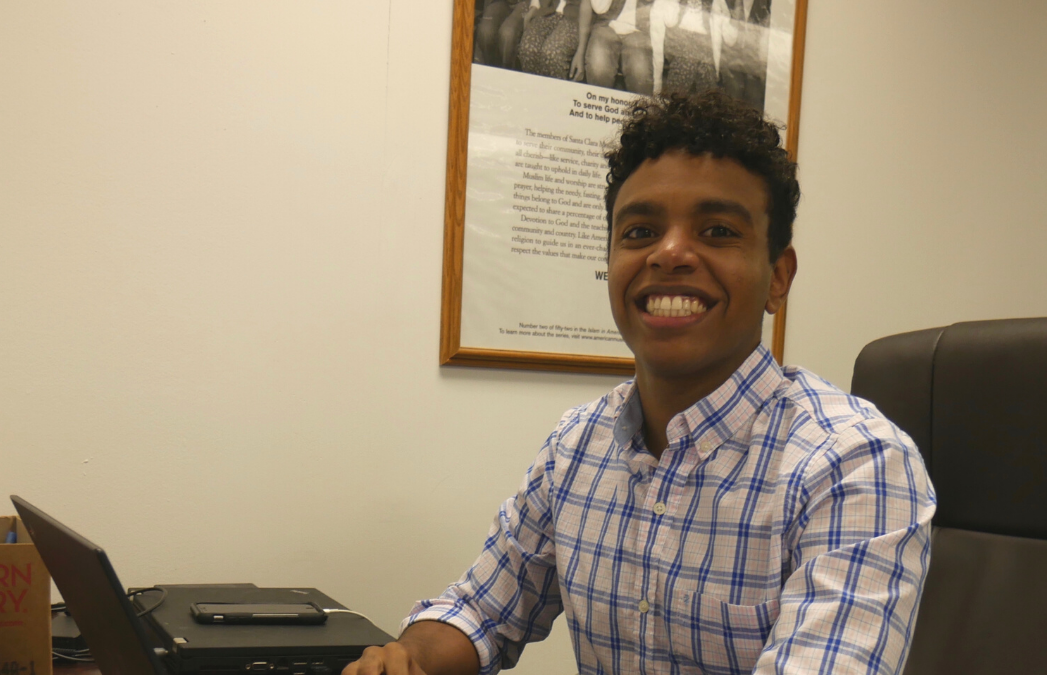
by Madison McHugh | Nov 7, 2019 | Internship Experiences, Undergraduate Students
My name is Mohamed Elshekh, and I am a senior at Seton Hall University studying International Relations and Diplomacy as well as Religious Studies. I interned at the Council on American Islamic Relations, New Jersey Chapter (CAIR-NJ), as the Government Affairs Coordinator. My primary concern while searching for internships was finding a position that combined my passions for diplomacy and religion. CAIR-NJ serves as the largest Muslim civil rights organization in America, with chapters all across the country. This was the ideal position because their goal is to enhance Americans’ understanding of Islam, promote tolerance and justice, and empower American Muslims across the United States.
With CAIR-NJ, I was tasked with communicating the needs of CAIR to various political campaigns and government officials. My biggest responsibility was planning for the Muslim Day of Advocacy (MDA), an annual event held in Trenton, NJ where various Muslim delegates meet with elected officials to advocate on behalf of the Muslim community and educate on concerns. I was tasked with drafting talking points for MDA, preparing a fact sheet of the bills we will be supporting, and recruiting delegates who will be present the day of the event. In addition, I scheduled meetings with government officials so that we would have time to properly prepare our delegates before the meetings and so they would be able to speak about the bills in the NJ legislator and explain why the Muslim community either supports or rejects the proposed bill.
The work I completed with CAIR has transformed my outlook on civil rights work and domestic policy. I believed that as a Diplomacy student, my interests would only align at an internship that focused on issues relating to the international community. With CAIR, I learned that these small steps taken to change domestic policy can have far-reaching effects that alter international policy.
Seton Hall’s School of Diplomacy provided me with the necessary skills to excel in the position. My background in International Relations and U.S foreign policy was essential for communicating with government officials and their staff, as well as creating fact-sheets and writing on behalf of the goals of CAIR. I recommend this internship to students who have a passion for civil rights and advocacy. This position served as a vital tool to my personal and career development. The professional skills and knowledge that I gained from CAIR will continue to help me after I graduate college and enter the job market.
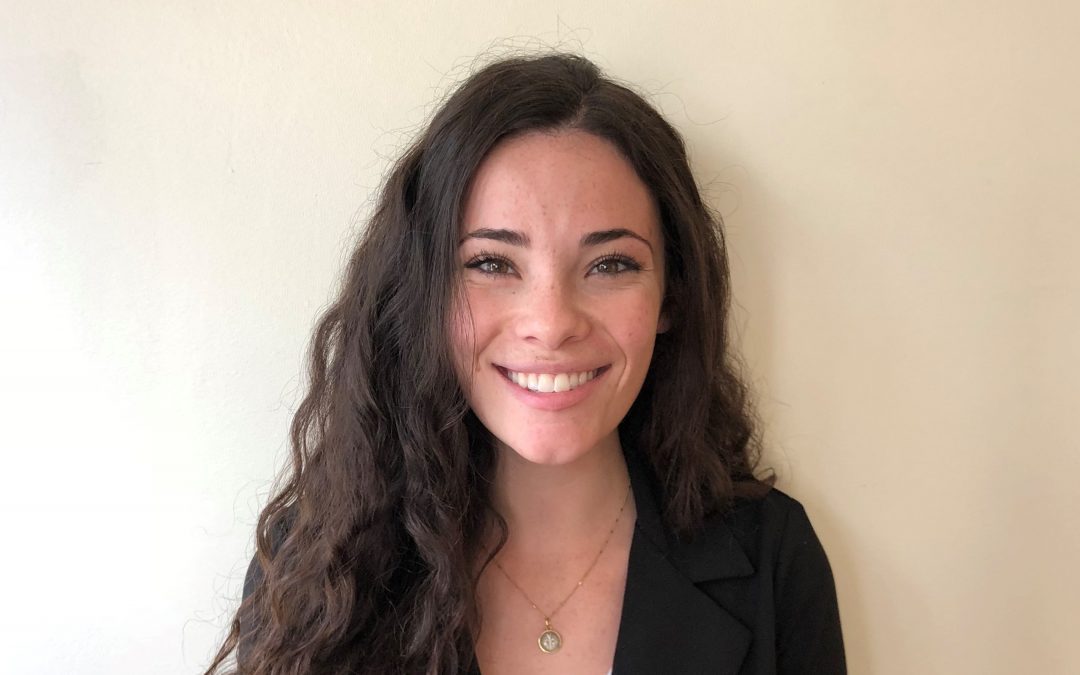
by Madison McHugh | Oct 11, 2018 | Internship Experiences, Undergraduate Students
My name is Carlee Sutera, and I am a Senior Diplomacy and International Relations student at Seton Hall University. Over the summer, I interned at the Women’s Entrepreneurship Day Organization (WEDO) in New York City. WEDO is a nonprofit organization whose mission is to educate, empower, celebrate, and support women in business and inspire girls to be leaders in STEAM (Science, Technology, Engineering, Arts, and Math) so they can create a positive impact in their communities worldwide. I was the International Relations Intern responsible for communicating and coordinating with WEDO global ambassadors for the official celebration of Women’s Entrepreneurship Day on November 19th. Since the event is celebrated in 144 countries, there is a lot to be done year-round, and I was given the opportunity to work intimately with ambassadors from the United States, Europe, Africa and the Middle East.
My Diplomacy classes prepared me to interact with people of all different cultures and enhanced my communications and negotiating skills, all of which were essential to my position. The skills gained at my internship have been crucial to my professional development as well, specifically my experience with new communications tools such as WordPress, Canva, and SendGrid. I also had the opportunity to improve my interpersonal skills and networking abilities. When working with many different people on many different, coordinated tasks, there are bound to be communication issues, but I learned to navigate the process and be productive even in high-stress situations.
Some of my favorite assignments included event planning for WEDO-sponsored events, such as our monthly breakfasts with women entrepreneurs discussing their experiences. This was some of the most rewarding work because I was able to see and experience the physical results. Early on, we featured Adi Eckhouse, the creator of the iPhone’s facial recognition technology (called RealFace), from Israel. At another breakfast, we featured Reshma Saujani and Fereshteh Forough, two women pioneers in the coding field with non-profit organizations that encourage closing the gender gap in technology spaces. Listening to women talk about their experiences as entrepreneurs was truly inspiring and further emphasized the importance of what WEDO as an organization is doing. While I have been extremely lucky and privileged with many opportunities in my life, many women around the world do not have the same access. WEDO gives women opportunities that they would not have otherwise, making a real impact on individual lives. Because of this experience, I hope to use my skills to further uplift and support women in my line of professional work. I would recommend this internship to anyone interested in gaining experience with a large and impactful non-profit that also has a significant impact on the lives of women all over the world.
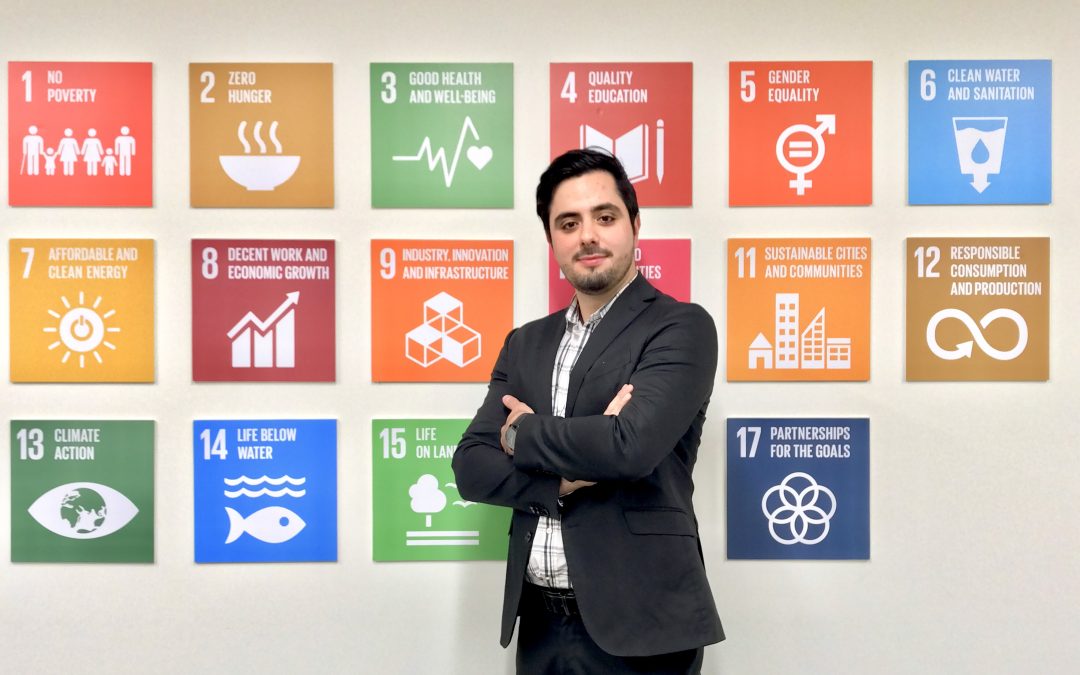
by Madison McHugh | May 18, 2018 | Internship Experiences, Undergraduate Students
My name is Ahmet Yoruklu, and I am a senior studying Diplomacy and International Relations with a double major in Economics and a minor in Russian. I am currently interning at the world’s largest corporate sustainability initiative, the United Nations Global Compact, whose mission is to mobilize a global movement of sustainable companies and stakeholders to create the world we want. Since I have been interested in multi-stakeholder collaboration between the private and non-business sector for development and sustainability across the world, I can’t think of a better fit for my personal development in this space.
As I work on the Client Engagement team here at the UN Global Compact, I get to interact with our business participants on various topics; from communication on annual progress reports to post-event follow-up campaigns. In addition, I conduct rigorous research on prospective participants and assist my supervisor in executing recruitment procedures efficiently.
What I enjoy the most about my internship is that I have the privilege of learning about the world’s largest companies and MNC’s as part of my work. It is an outstanding experience to witness how businesses align their operations and business strategies with global goals for a more sustainable world. Moreover, the opportunity to attend flagship events on different themes, such as the Commission on the Status of Women as well as the SDG Business Forum during my internship period at the UN Headquarters is certainly an invaluable experience.
When it comes to my studies at Seton Hall, what I do here on the Client Engagement team is very much related to Diplomacy and International Relations as well as Economics. Since we are a multi-stakeholder organization, we communicate with numerous entities from all over the world which requires a certain knowledge of diplomatic language and cultural awareness. In terms of diplomacy, I am certainly reaping the rewards of what I have learned studying diplomacy as I execute on my tasks, whether writing a report or utilizing critical and rational approaches during decision-making processes. Combining my knowledge of diplomacy with economics has created the best foundation for me to understand why for-profit entities take certain actions in the global economy and how I can come up with innovative ideas and solutions to achieve our agenda at the UN Global Compact. Both diplomacy and economics prepared me to be more resourceful when it comes to communicating with private sector companies and engaging them with our organization.
As I gain new experiences with this internship, it has helped me become more realistic about my career goals in terms of what path to follow in the near future. Through the experiences I add to my skillset, such as CRM management, strategic partnerships, and corporate communications, I am becoming more prepared than ever to pursue my goals in the sustainability space.
I would definitely recommend this internship opportunity to anyone who would like to gain hands-on experience in private and non-profit sector collaboration. The UN Global Compact provides an outstanding environment for those who are passionate about fulfilling global goals via local business in every part of the world – from the center of the world, New York City.
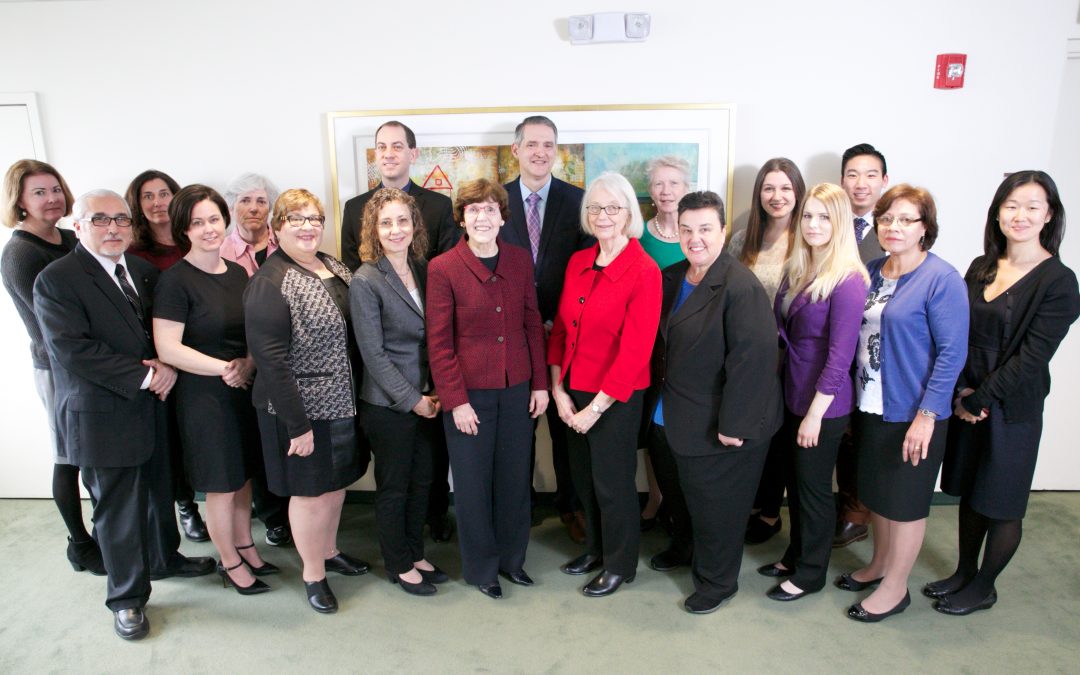
by Madison McHugh | Apr 19, 2018 | Graduate Students, Internship Experiences
My name is Madison McHugh, and I am a graduate student in the dual degree program at Seton Hall University. I am obtaining a Master of Business Administration as well as a Master of Arts in Diplomacy & International Relations. I interned as the Communications Associate at The Nicholson Foundation, a non-profit organization in Newark, NJ focused on funding projects in health and early childhood across the state.
As a Communications Associate, I worked directly under the Communications Manager and assisted in assignments related to the official branding of all materials for The Nicholson Foundation. These assignments included managing website content, posting for the organization’s official social media, and writing and editing press releases, op-eds, and speeches.
My coursework in the dual MBA/MADIR program prepared me for success in my internship as I utilized skills such as research, writing, and public speaking. Not only do I feel that I honed my writing into specialized capacities, such as those embodied in health and early childhood education, but I am confident that I can fulfill the responsibilities of a communications position in my post-grad prospects.
My internship with The Nicholson Foundation was a unique experience because it offered me vast flexibility in assignments and responsibilities. Moreover, my individual input was highly valued within the organization, and many of my ideas were implemented during my time. I was even able to pitch a unique idea to the Executive Director: I wanted to create and manage his official, professional Twitter page. To this end, I created a PowerPoint and pitched the idea after setting a personal meeting. He was very receptive, and with more discussion on details and management in the weeks to follow, he agreed that I should move forward with my idea.
The freedom that I was given at The Nicholson Foundation was both exhilarating and intimidating. On the one hand, I was able to capitalize many times on my ideas and implement positive changes towards increased efficiency and impact within and without the organization. On the other hand, the Communications Manager offered me a great amount of responsibility during his paternal leave, and I managed the Communications Department in his stead throughout April and May. At the time, while I had been acclimated to the chain of command, it was a new and exciting challenge to manage to both positions as well as the needs of the department as they overlapped with others in the organization.
I would highly recommend this internship to students who want the opportunity to put their innovation, originality, and professional drive to the test. The Nicholson Foundation is a wonderful organization that embraces new ideas and values contributions from youth that perpetuate the organization’s legacy as a health and early childhood funder in New Jersey.
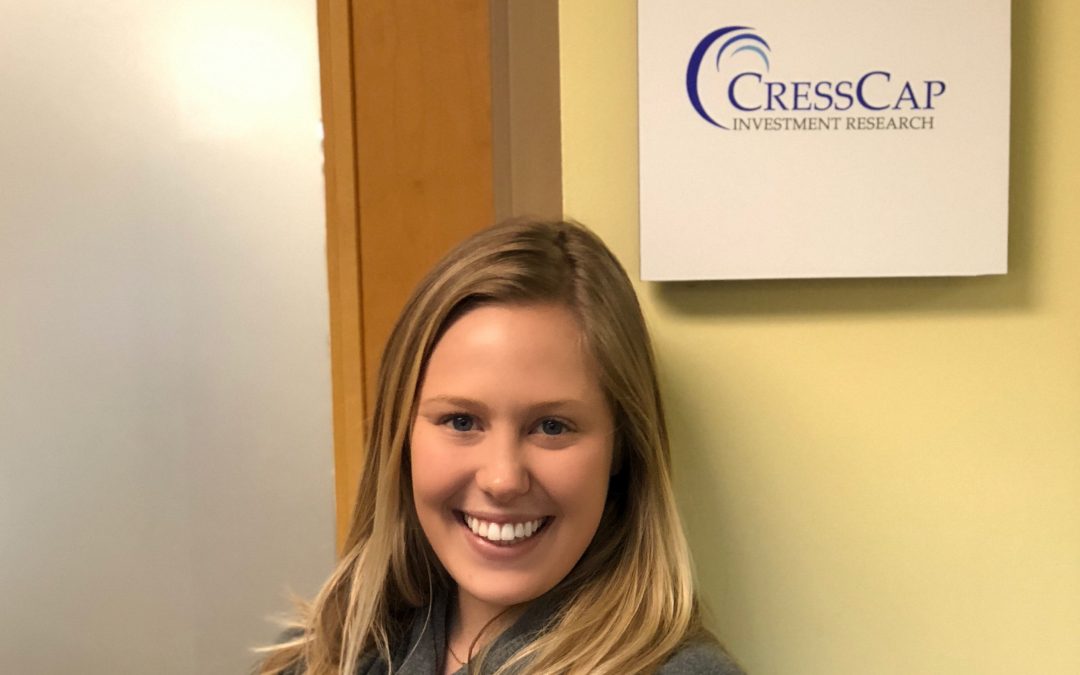
by Madison McHugh | Apr 5, 2018 | Internship Experiences, Undergraduate Students
My name is Tela Wittig, and I am a junior Diplomacy and International Relations student. I have taken a convoluted path to my current internship and career field, changing my focus from international criminal law and law enforcement to international business. It was through this journey that I came to intern at CressCap Investment Research.
CressCap is a small, innovative company that has essentially automated many of the functions of a financial analyst through fractal analyses of stocks’ fundamentals. Although investment research is considered far removed from the international relations education I received, my assignments have been shockingly compatible with my skillset. I recall coming into the office for my second interview as well as my first opportunity to meet with the whole team. They asked me several questions about how I had found out about the internship and why I had decided to follow through with the application. Through these questions, it was clear that they were beating around the point that I had no finance, sales, or programming experience – the skills most natural to FinTech startups.
My final interview was with the COO who asked me outright why I wanted to work at CressCap and what I wanted out of this experience. I answered without hesitation that I had made a commitment to moving into the private sector and I intended to learn. Then we went through the CressCap website, and I explained the grammar and style changes I thought would improve their external image. I suppose it’s just lucky that I walked into a group of people who are invested enough in their business that they appreciate that kind of criticism from an interviewee, but the chance I took paid off. Since then, I have found the office to be a great place for expressing myself and feeling heard.
Today, I am three months into my first experience in finance. My passion for the finance industry has grown, and my new knowledge has helped me identify and express what I want to do in my professional career. I am working hard to learn all that I can about running a business, including sitting in on meetings, asking questions, and working within our systems. Moreover, while learning new skills, I have also come to realize that there are many aspects of my international relations education that I can maintain as I move farther into my finance career.
In the finance sector, it turns out that reading, writing, and language skills are key. This has worked to my advantage in many ways. My education in Diplomacy and International Relations helped me improve my writing and analytical skills. In addition, I worked as an English writing and grammar tutor on the Seton Hall campus. These experiences helped me realize my love for the English language and further advance and improve my Chinese language education. I know now that I can pursue each of these subjects in conjunction with finance and make myself indispensable by possessing coveted language skills and expertise. As a result, I was chosen to work with CressCap’s CEO to write weekly contributor articles for Forbes.com with top and bottom international stock picks using our platform’s analysis. In this way, CressCap has been an exceptional experience because it has allowed me to tailor my unique skillset to the tasks at hand. This has brought all of my passions together to create something I really love to do, which is an exceptional opportunity at 20 years old. I highly recommend the internship for students who want to learn about finance from the ground-up and increase their marketability in the private sector.
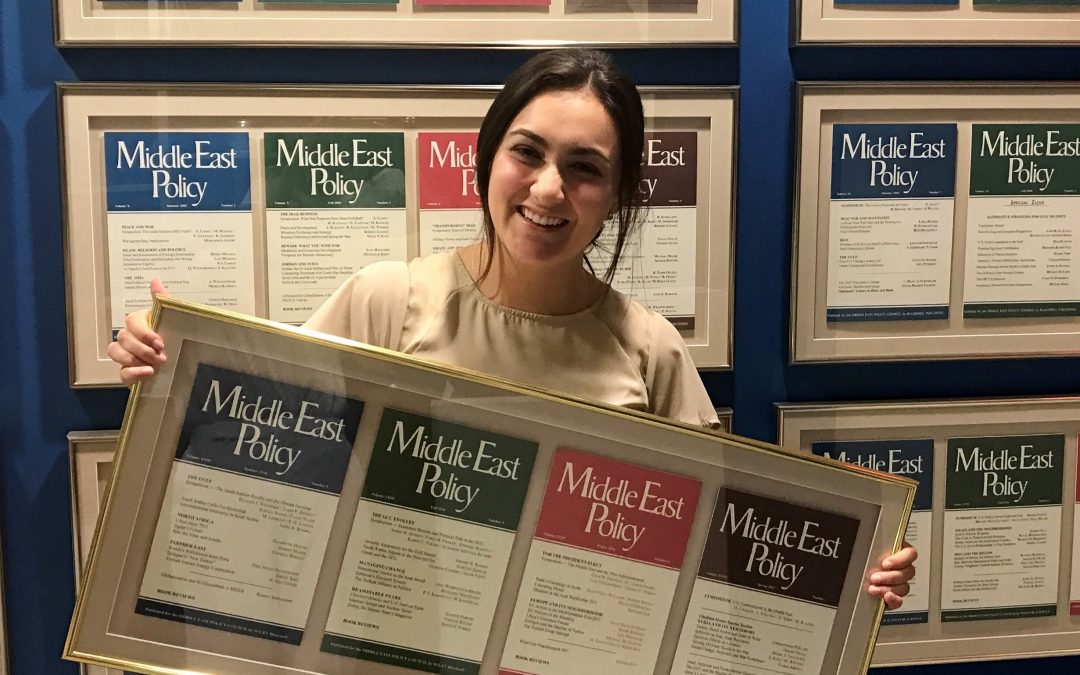
by Madison McHugh | Nov 15, 2017 | Internship Experiences, Undergraduate Students
My name is Gabrielle (Gabi) Hunt, and I’m a rising senior studying Diplomacy, Environmental Studies, and Arabic at Seton Hall. I wanted the organization I interned with this summer to involve work synthesizing all of my interests. Ultimately, I decided on Middle East Policy Council (MEPC) in Washington, D.C., and I could not imagine a better fit.
MEPC is a nonprofit think tank that focuses on education and advocacy work in Middle East issues. It publishes the leading Middle East affairs journal, Middle East Policy (MEP), hosts quarterly Capitol Hill conferences discussing current events, and has an educational outreach branch, TeachMideast, designed to make Middle East issues more accessible to K-12 teachers and students.
I was one of two interns at MEPC who dealt broadly with educational outreach, event coordination, and social media management, along with inputting edits and proofreading articles to be published in MEP. I also wrote a few of my own pieces on current events and completed a 10-week independent project with my fellow intern. For our project, we started a video series aimed at capturing the lives of Arab-Americans around the D.C. metropolitan area. The topics of their interviews typically encompassed how their professions, interests, and passions relate to their cultural identity.
In addition to the larger project, I conducted a series of small projects throughout the weeks – like writing TeachMideast focus pieces – which brought together my interdisciplinary interests. With focus pieces in particular, I was given the opportunity to write about anything I found interesting – from the Saudi Vision 2030 plans to reducing dependency on oil, to the origins of the Boycott, Divestment, and Sanctions movement.
I loved my 10 weeks working at MEPC, especially because I was given so much opportunity to be creative through self-guided projects. Through independent work, I strengthened my professional development and time management skills. I also enjoyed my inclusion in the publication process of MEP, not only because of my interests in writing and editing, but because the responsibility of accurately inputting edits and proofreading fine-tuned my attention to detail and precision. My favorite part about MEPC is that I always felt like a valuable team member whose input was valued.
Overall, I could not be happier with the senior leadership internship experience I had, and the time I was able to spend working in D.C.
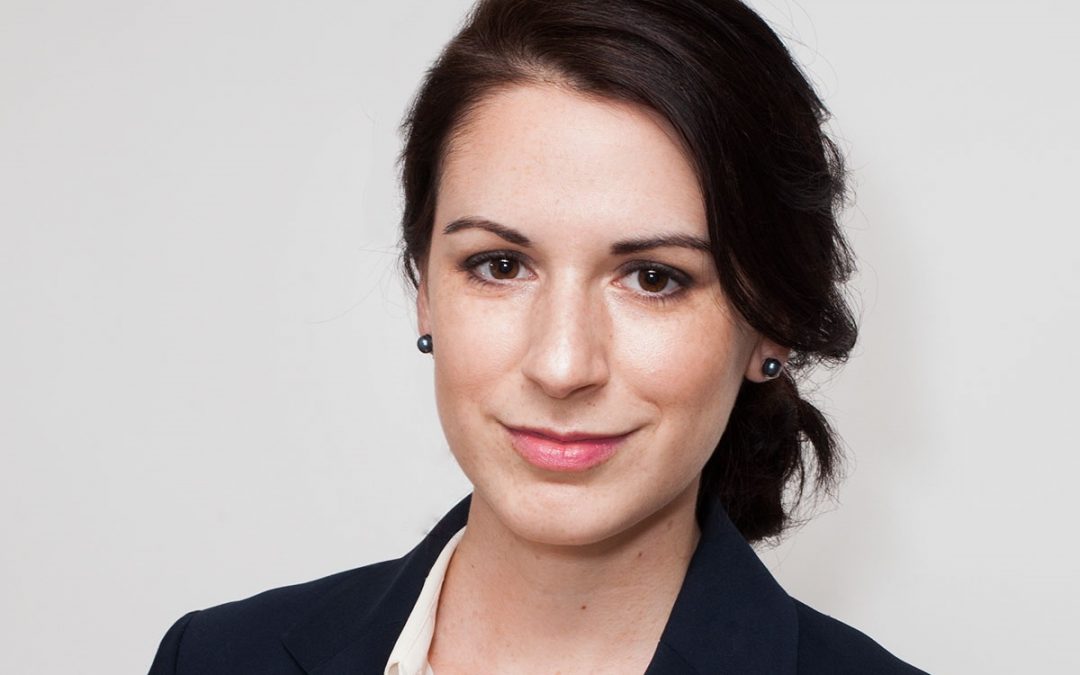
by Catherine Ruby | Jun 6, 2017 | Graduate Students, Internship Experiences
Emily Fox, M.A. May 2017
Carnegie Council on Ethics in International Affairs Internship
This spring, I had the opportunity to intern with the Carnegie Council on Ethics in International Affairs (EIA). I worked for Ethics & International Affairs, a journal publishing articles on current normative and ethical issues in foreign policy and international relations. One of my duties as an Editorial Intern was to act as the first point of assessment for all incoming submissions. In order to succeed at this task, I needed to have not only a strong theoretical background, but also a degree of familiarity with a wide array of current events. Thankfully, the School of Diplomacy has prepared me for these topics.
One of the most prominent debates in international relations ethics regards the policy and principle of the Responsibility to Protect, and many of the submissions I reviewed dealt with this topic. The knowledge I gained at the School’s United Nations Summer Intensive course was incredibly valuable for formulating assessments of these articles. Being able to hear firsthand from experts such as Hugh Dugan and Ed Luck really strengthened my background on the complexity of these issues and the opportunities and constraints the UN must navigate.
My skills in writing and editorial judgement were strengthened considerably by this internship, and I expanded my knowledge of international affairs by reading articles and essays by scholars. I learned a great deal about publishing and the peer-review process, and am able to participate and contribute in high-level meetings. Though I was lucky to have several years of professional experience prior to being hired at EIA, I have found that each professional environment teaches me something new about organization, communication, and workflow.
Should I choose to pursue a career as an editor, I will be prepared as my internship with EIA taught me a great deal about the requirements and challenges in the field, and has shown me the best practices for working through different stages of publication. As an intern, I often juggled several projects at once. My team at EIA was ready to provide guidance on prioritization and organization, which allowed me to complete my tasks efficiently without sacrificing quality.
The assignment I was most excited to complete at EIA was my book review. Each intern is invited to contribute a short review of a book of their choice for publication online and in the print journal. Because I could choose my book, I was able to pick something in an area in which I am interested. Not only was I able to read a book that interested me, but I also gained valuable writing experience from the exercise.
During my time at the internship, I tried to incorporate feedback whenever possible and volunteered for additional work when able. While I still have many opportunities for improvement, I think that applying these principles helped me to be successful thus far.
I would highly recommend my internship to others. The Carnegie Council is an excellent institution and a great place to be connected to. My coworkers have made me feel like a true member of the team, and their advice and guidance has been incredibly helpful for my professional development.
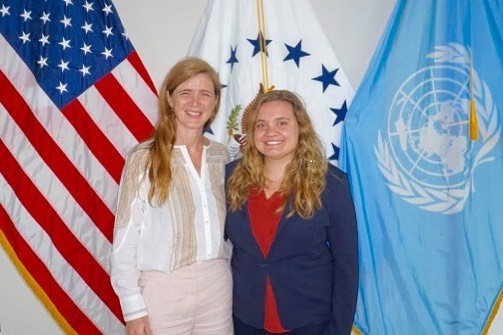
by Catherine Ruby | Sep 21, 2016 | Internship Experiences, Undergraduate Students
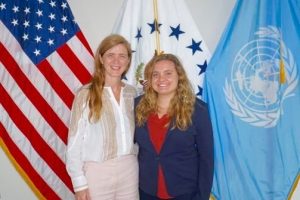
I interned for the U.S. State Department, Press and Public Diplomacy Office, at the U.S. Mission to the UN. This experience was a great one that not only taught me about work at the Department of State and the UN but also gave me my first insight into communications work, something I now consider a post-grad option that I never considered before.
Press interns at the US Mission have two main responsibilities including news monitoring and transcriptions. The Press Office is responsible for putting out verbatim transcriptions of U.S. ambassadors’ remarks at the UN and in other venues where they are operating in an official capacity. These remarks are released to the public and are government records, hence there is a high expectation of accuracy. Many reporters will ask the Press Office for transcripts of ambassadors’ remarks to include quotes in their articles. These reporters are often on deadline which increases the need for these transcripts to be done as quickly as possible. While our supervisors always checked our work before any transcripts were released, this task taught me a lot about how to work quickly under pressure while still maintaining a standard of excellence.
I also attended “brown bag lunches” that the Human Resources Department set up for the interns. We were able to have an hour long discussion with executives from different sections within the mission. This was an opportunity to learn from people doing work in all of the areas the U.S. Mission operates. We heard from many Foreign Service officers in the political and economic sections and what their responsibilities were in those areas. It was interesting to see how their work differed from the work of the Public Diplomacy officers that we worked with in press. My favorite part of these lunches was speaking with the economic officers as I am majoring in Economics as well as Diplomacy. One statement that stuck with me months later was from a discussion with an experienced economics officer who saw what she did as a form of ‘journalism’ for the government. These officers’ duties involve gathering information on the ground in whichever country they are stationed in and writing cables or “articles” that are then sent back to Washington. As someone who has always loved to write and even considered journalism as a career path, this was an eye opening conversation that showed me how I could combine all of my passions; economics, diplomacy, and writing; in a job with the U.S. State Department or another area of the federal government.









